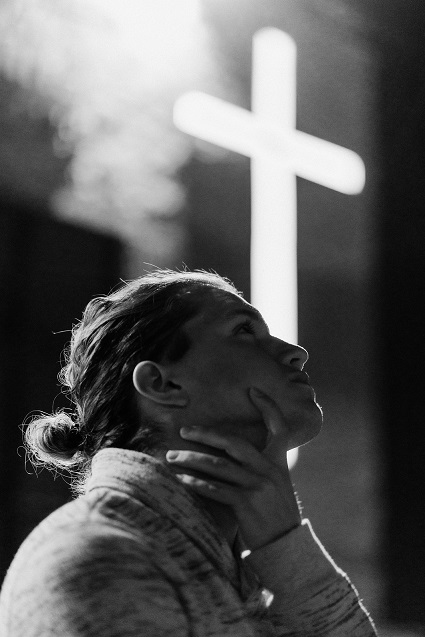The last time we saw Charlie, he was working at the Greater Manila Food Terminal sorting eggs. He was one of my favorite guys among the early converts at the university in Los Banos in the Philippines. There was a quality of openness about him that I respected.
He had a tough background that included drugs. Like most Filipinos, he was not a large man, but he was strong. He genuinely enjoyed putting his body to work to accomplish a task.
Even more attractive to me was the quiet gratefulness and awe Charlie communicated when he talked of his “new life” experience in Christ. It was real. He knew it was. But he couldn’t quite stuff into his mind the wonder of what had happened. I prayed for him often.
Discouragement and despair set in early. He so much wanted his life to count for God. He knew where his life came from, but he simply could not see how he could become a man of God like other new Christians. He stumbled over his own sense of weakness.
I wish I understood then what I understand now. Although sin can easily block our progress toward godliness and fruitful service, weakness should not. In fact, weakness qualifies us to be effective servants in the family of God.
Here and there in the Scriptures we see glimpses of this paradoxical truth. One discussion of it is in Hebrews 5:1–6, a passage that examines the qualifications and role of the high priest in the Old Testament.
The main thrust of the passage is the superiority of Jesus Christ and his eternal priesthood. Yet there are many encouraging and instructive parallels for our own life and service before God. After all, the apostle Peter stated that we who have been born again “are being built into a spiritual house to be a holy priesthood, offering spiritual sacrifices acceptable to God through Jesus Christ” (1 Peter 2:5).
Representing Men to God
Every high priest is selected from among men and is appointed to represent them in matters related to God, to offer gifts and sacrifices for sins.
As we see in the first verse of this passage, the high priest was a representative. I once thought his primary function was to represent and interpret God to men, but this was not so. He was instead to represent men before God, as the passage says.

In the time of the Aaronic priesthood this took the form of offering gifts and blood sacrifices for the atonement of sins. That function is now obsolete, since Jesus Christ has eternally settled the sin question before God.
Our primary priestly work now is in prayer and praise. It is representing men and women before God in prayer, understanding them and pleading for them in all their needs, their ignorance, and their wanderlust.
The functions of the Old Testament high priest also included a kind of meditation. He had on his heart the children of Israel. This was true literally: We learn in Exodus 28 that he wore a breastplate nine inches square, set with twelve different precious and semiprecious stones representing each of the tribes of Israel and engraved with their names. He thus was to “bear the names of the sons of Israel over his heart… as a continuing memorial before the Lord” (Exodus 28:29). He remembered them before God.
Weakness Brings Empathy
He is able to deal gently with those who are ignorant and are going astray, since he himself is subject to weakness.
Here’s where I missed it with Charlie. Our weaknesses help us empathize with others. Our weaknesses help us understand that all of us are children of dust.
This should humble us and make us depend on the Holy Spirit, without leading us to discouragement, defeat, and despair. Charlie didn’t know this, and I didn’t tell him.
Let’s look at Aaron, Moses’ brother, who was appointed the first high priest of Israel. Moses was on Mount Sinai for forty days receiving the great laws to be proclaimed to the children of Israel. Where was Aaron during this time?
At the very moment Moses was standing in the electric holiness of God, watching God’s finger chisel in stone the words “You shall not make for yourself an idol,” Aaron was collecting earrings to cast a golden calf for the people to worship. It is hard for us to understand such a colossal perversion. Weakness indeed!
Nevertheless, if for a moment we can put aside the muddleheaded blundering of this man who was somehow chosen by God, we can still see the outline of his priestly office. Though he was weak, he identified with the people and their needs. He found some means to represent them to a god. He dealt gently with them.

But since his ministry at that time was devoid of true spiritual content, the people went astray. He was ignorant and weak, and so were they.
A few years after Christ began his ministry, he sat with his disciples around a meal. Looking deeply into their eyes and hearts, he said, “You did not choose me, but I chose you to go and bear fruit—fruit that will last” (John 15:16). Within hours all of them would desert their Master. How obvious it is that they were chosen in their weakness!
As it was with them, so it is with us—we are not called because of our strength.
Getting Cleaned Up
This is why he has to offer sacrifices for his own sins, as well as for the sins of the people.
Aaron’s instructions as high priest (in Exodus 29) were clear. His first duty was to wash himself thoroughly and clothe himself with sacred garments. Afterward he was to sacrifice a ram and a young bull for his own sins. Then, and only then, was he allowed to make sacrifices in behalf of all the people.
For you and me and Charlie the pattern is the same. We must thoroughly wash ourselves, then clothe ourselves with the Fabric of the Ages, the Lord Jesus Christ.
God is a holy and uncompromising God. Our weaknesses are understandable, but our sin is intolerable. In Aaron’s day the sacrifices of young, unblemished, innocent animals pointed to the ultimate sacrifice of the Lamb of God for our sins. Only the crushed and broken body of God’s pure and holy Son could satisfy God’s justice.
Our sacrifice has been made. “We have been made holy through the sacrifice of the body of Jesus Christ once for all” (Hebrews 10:10). Therefore our service for God, as well as our fellowship with him, starts simply with our cleansing. “If we confess our sins, he is faithful and just and will forgive us our sins and purify us from all unrighteousness” (1 John 1:9).
Make no mistake: Whatever our aspirations and achievements for God, we will never be far from weakness and sinfulness. On this side of death our usefulness and communion with God is on a short leash. But for some wonderful reason God chooses and uses the weak in a way that does not compromise his majesty or holiness.
He says,
I live in a high and holy place, but also with him who is contrite and lowly in spirit, to revive the spirit of the lowly and to revive the heart of the contrite. (Isaiah 57:15)

While weakness qualifies us to carry out our priestly functions in behalf of others, it must be joined with humility and godly repentance to vitalize our relationship with God. Many people, though weak and sinful, do not repent. Their attitude turns God into their adversary. Weakness alone is not sufficient to qualify us as effective servants of God unless we admit our weakness to him.
God’s Calling
No one takes this honor upon himself, he must be called by God, just as Aaron was.
The starting point in the priesthood is God’s sovereign calling, his own choosing of us. There is no exception. “No one takes this honor upon himself.” No one therefore has reason to boast before him. Even Jesus Christ humbled himself and patiently waited for his appointed time of ministry.
Christ’s Pattern
So Christ also did not take upon himself the glory of becoming a high priest. But God said to him, “You are my son; today I have become your Father.” And he says in another place, “You are a priest forever, in the order of Melchizedek.”
The pattern of Christ’s unique calling was similar to ours. By his special but very human birth the Father clothed him in weakness. In that human (though sinless) condition he was appointed Eternal High Priest. The initiative was God’s, and God equipped him to serve by giving him the Holy Spirit “without limit” (John 3:34).
It should be said here that in addition to our calling of being a priest before God, many may have other special callings. The Scriptures mention a number of such callings, and for all of them God equips his servants with gifts and capacities to carry them out. Again, it is God’s initiative at work.
But wherever we sit around his table, we are called to be part of God’s royal priesthood.
By God’s grace, let us grow into that calling.
This article from Discipleship Journal issue 5 is reprinted from Gene Tabor’s “From Where I Sit,” February 1981, by permission.

